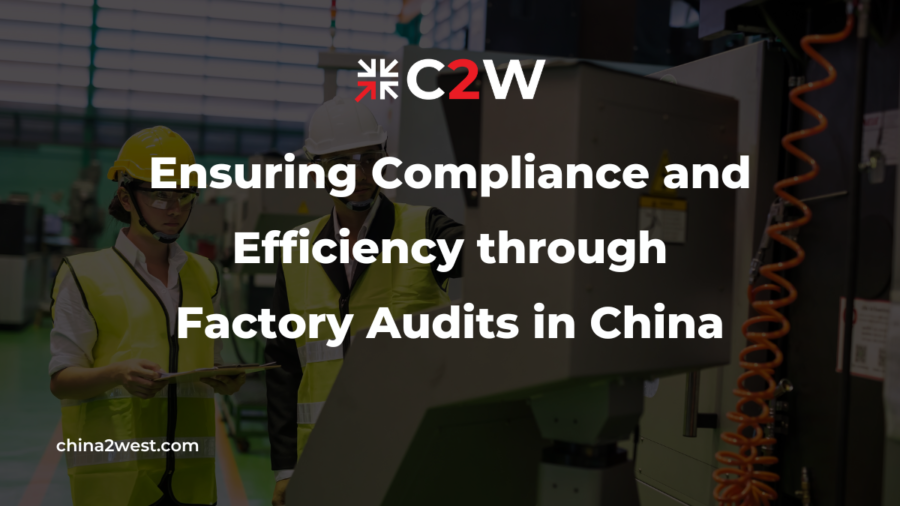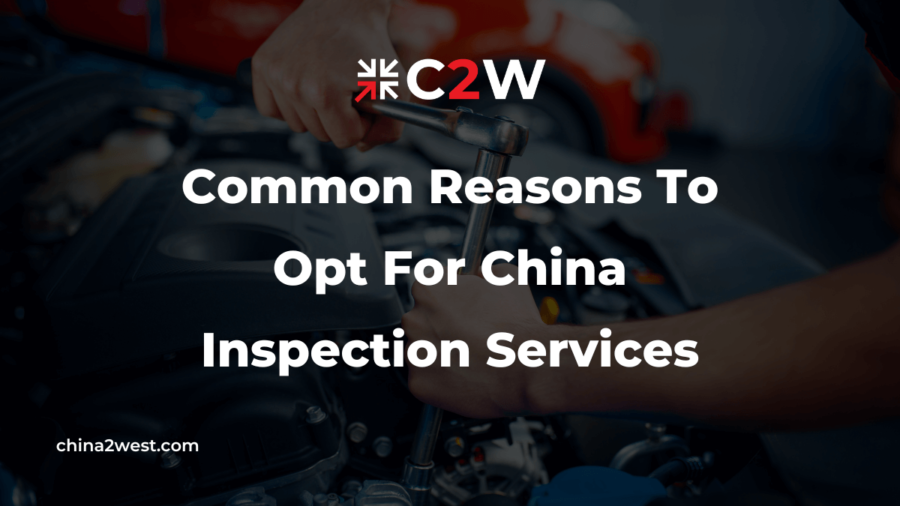When manufacturing products in China, ensuring compliance and efficiency is crucial for businesses. Conducting a factory audit in China can help companies achieve these goals by providing a thorough assessment of the manufacturing processes and ensuring that the factory meets industry standards. In this guide, we will explore the importance of factory audits in China, the types of audits to conduct, how to prepare for an audit, key areas to focus on during the audit, best practices for conducting audits, analyzing and acting on audit findings, and the role of continuous monitoring and follow-up.
What is Factory Audit?
A factory audit, also known as a manufacturing audit, is a comprehensive evaluation conducted at a manufacturing facility to assess its operational processes, compliance with relevant standards, and overall performance. The purpose of a factory audit is to ensure that the facility meets the quality, safety, and regulatory requirements set by the company contracting the factory, as well as any applicable international standards.
The Importance of the Factory Audit in China
The factory audit holds a pivotal role in the landscape of global manufacturing, particularly in China where the scale and diversity of production can vary significantly across factories. It serves as a critical tool for businesses seeking to align with manufacturers that uphold not only the quality but also the ethical standards expected in today’s market. By delving into the operational aspects of a factory, companies gain invaluable insights into the manufacturer’s capabilities, the robustness of its processes, and its adherence to relevant local and international regulations. This process is essential for identifying potential risks—be they related to quality, safety, or regulatory non-compliance—before they escalate into more severe issues that could impact the business negatively.
Furthermore, factory audits in China provide a transparent view into the working conditions and environmental practices of manufacturers, aspects increasingly scrutinized by consumers and regulatory bodies alike. Engaging in these audits demonstrates a commitment to responsible sourcing and manufacturing practices, fostering trust and reliability in business relationships. Through the lens of a comprehensive factory audit, businesses can make informed decisions, ensuring their manufacturing partners in China meet their high standards for quality, efficiency, compliance, and social responsibility.
Types of Factory Audits to Conduct in China
Conducting factory audits in China is crucial for businesses to ensure compliance with industry standards, verify quality, assess supplier capabilities, and maintain responsible supply chain management. Here are several types of factory audits typically conducted in China:
Quality Control Audits
These audits focus on the quality management system of the factory to ensure that the manufactured products meet predefined standards and specifications. Inspectors assess various aspects such as the quality of materials, production processes, and final product inspection procedures.
Social Compliance Audits (SCA)
Also known as ethical audits, these focus on the social aspects of the manufacturing process, including worker rights, child labor, forced labor, health and safety conditions, and environmental impact. This type ensures that the factory complies with local labor laws and international human rights standards.
Environmental Audits
These audits assess the environmental impact of manufacturing processes. They examine waste management, resource use, pollution control measures, and compliance with environmental regulations and standards.
Security Audits
Especially relevant for industries that deal with sensitive materials or information, security audits evaluate the physical and informational security measures in place at a factory. This can include assessing surveillance systems, entry controls, and data security practices.
5 Key Benefits of The Factory Audit
Factory audits are essential for businesses that rely on manufacturing to ensure product quality and compliance with regulations. Here are some key benefits of conducting factory audits:
Boosting Efficiency
Conducting thorough factory audits serves as a strategic tool for pinpointing inefficiencies within production processes, paving the way for optimization. Through the identification and elimination of bottlenecks, redundancies, and wasteful practices, companies can significantly enhance their operational efficiency, thereby bolstering productivity and ultimately boosting profitability.
Ensuring Compliance
Audits play a crucial role in ensuring that manufacturing processes align with a comprehensive spectrum of local and international regulations. By meticulously scrutinizing operations, audits serve as a bulwark against potential legal entanglements, mitigating risks and safeguarding against non-compliance pitfalls. Moreover, this diligent adherence to regulatory frameworks not only shields companies from legal ramifications but also bolsters their brand image, fostering trust and confidence among consumers and stakeholders alike.
Avoiding Scams and Fake Factories
By conducting thorough visits and inspections of supplier facilities, companies can ensure that they are engaging with reputable and proficient manufacturers, rather than being inadvertently involved with establishments that endorse unethical behaviors or operate as sweatshops. This proactive approach allows businesses to uphold their standards of integrity and responsibility while safeguarding against potential risks associated with dubious practices within the supply chain.
Infrastructure Verification
Inspecting a supplier’s facilities firsthand is crucial for verifying that they have the required infrastructure and technological capabilities to produce products according to your company’s specifications. This practice is instrumental in upholding quality standards and fulfilling production requirements effectively.
Risk Reduction
The factory audit plays a crucial role in mitigating the potential risks associated with encountering defective or subpar products. By conducting the audit before production, any issues or shortcomings within the production process can be identified and addressed promptly. This proactive stance not only helps in maintaining quality standards but also serves as a cost-saving measure in the long run.
Preparing for Your Factory Audit in China
Preparing for a factory audit in China involves meticulous planning and cooperation with a reliable partner to ensure that the auditing process is thorough and effective. Here are key steps and considerations for preparing for your factory audit with a trusted partner:
1. Defining Audit Objectives
Clearly define the objectives of the audit before working with a third-party inspection company in China. Determine whether the focus is on quality control, compliance, environmental factors, social responsibility, or all of these aspects. Specific goals help tailor the auditing process to address the most critical areas of concern for your business.
2. Communicate Expectations with the Factory
Engage with the factory management to inform them about the audit. Provide details about what the audit will entail, the areas it will cover, and what kind of cooperation you expect from them. Clear communication can help prevent misunderstandings and ensure that the factory is prepared for the audit.
3. Selecting the Right Audit Partner
Now, select a reliable and experienced auditing partner. This partner should have a deep understanding of the manufacturing landscape in China, experience in your industry, and a proven track record of conducting thorough and impartial audits. Ensure that they are familiar with international and local standards relevant to your business. If you’re looking to maximize the benefits of factory audits for your manufacturing processes or need detailed insights into how to implement effective auditing strategies, we’re here to help. Contact us today and our team of experts is equipped to guide you through every step of the factory audit process, ensuring your business operates at its best.




